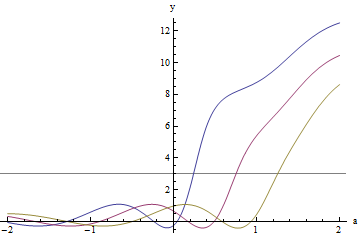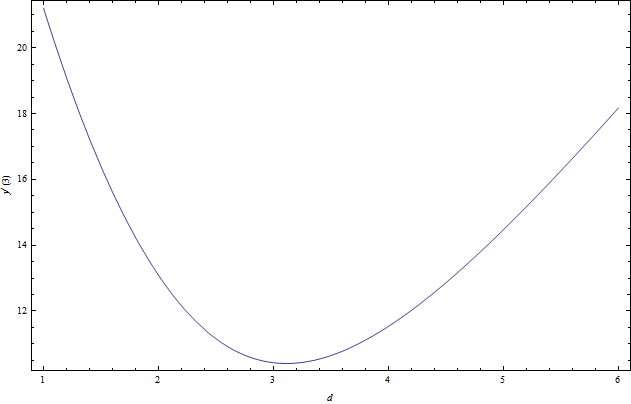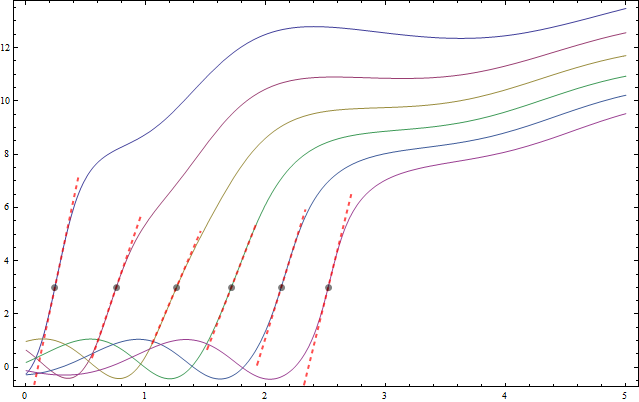I am using ParametericNDSolveValue to numerically solve an ODE system, which I then use to find the definite integral of one of the variables in the solution for different values of a parameter. Here is a simpler (and faster!) version of my code:
eqns={y''[t] + d y[t] == 3 a Sin[y[t]], y[0] == y'[0] == 1};
pfun[din_]:=ParametricNDSolveValue[eqns/.{d-> din}, With[{b=1},b NIntegrate[y[t],{t,0,5}]],{t,0,5},{a}];
which if plotted for three values of "d" looks like this

I am using FindRoot to find the "a" values at which these curves meet the line y=3.
Table[a /. FindRoot[pfun[din][a] == 3.0, {a, 0, 2}], {din, 1, 3, 1}]
What I would like to do next is find the value of the first derivative at each of these points (with the ultimate aim of plotting the derivatives w.r.t. the d parameter values used to make each curve). What I'm stuck on is: do I (1) first generate a list of "a" values using the code above and then somehow plug each element into code like this
Evaluate[Table[Derivative[1][pfun[din]][a], {din, 1, 3, 1}]]
(I'm not clear how to get the derivative function to call a subsequent element in the list for each din value).
or do I (2) embed the FindRoot function somehow into the derivative function? (I don't know how to do this, or do I use Table or Map?)


